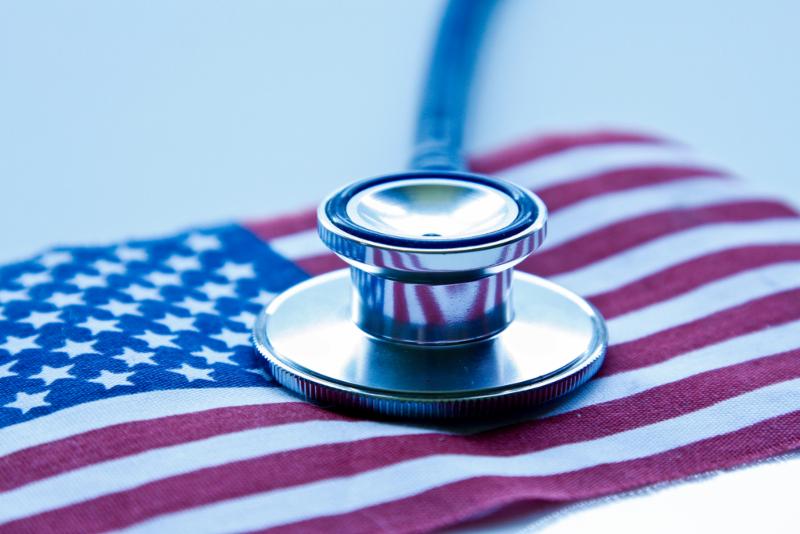Quarterly News from the WI Cancer Council Policy Committee | Nov. 2017
|
|
|
ASCO: Alcohol Increases Cancer Risk
|
|

On Nov. 7, the American Society of Clinical Oncology (ASCO)
released a groundbreaking
policy statement on the connection between alcohol use and cancer risk. Lead author and Policy Committee member Noelle LoConte, MD, briefed the committee on the statement's key points.
The
ASCO statement is designed to raise awareness, promote research, and push forward policy changes. "When people understand the connection between alcohol and cancer, they are more likely to support policy change," said Courtney Harris, policy coordinator for the WI Comprehensive Cancer Control Program.
Recommendations
- Regulating alcohol outlet density;
- Increasing alcohol taxes and prices;
- Enhancing enforcement of laws prohibiting sales to minors (< age 21); and
- Supporting efforts to eliminate "pink washing" - the use of the color pink or pink ribbons to market products associated with breast cancer.
Julia Sherman from the
WI Alcohol Policy Project reviewed opportunities to enact these policies
in Wisconsin, highlighting the significant local control municipalities have over alcohol outlet licensing, and an opportunity to add state funding for municipalities to enforce alcohol d
rinking age laws.
Response
However, both LoConte and Sherman discussed the strong pushback they've received from
the alcohol industry, colleagues, and the public.
"People clearly like their alcohol and don't want to be told about the negative health effects," LoConte said. "The feedback I get is, 'everything is a carcinogen, so who cares.' But with alcohol, ethanol is converted into a known carcinogen; it's a no-brainer. Our statement is not, 'Don't have fun,' it's, 'Know the risks.'"
Bottom line
Remember these talking points when discussing the alcohol and cancer link with patients, colleagues, and other constituencies:
- Alcohol use increases the risk of at least seven different cancers.
- Even low levels of drinking can increase risk, but the risk is greatest with heavy, long-term use.
- By reducing excessive drinking, we decrease the burden of cancer.
- To reduce your cancer risk, drink less. If you don't drink, don't start.
The ASCO statement represents a major step forward in advancing Priority 3 of the WI CCC Plan.
|
|
|
|
|
|
|
|
Marketplace Open Enrollment Starts Strong, Despite Navigator Cuts
|

Less than two months before the 2018 Marketplace open enrollment period began, the federal government announced
funding cuts
to advertising and enrollment assistance. Now that open enrollment has started, how is the Marketplace faring?
Sam Austin, associate researcher at UW's Population Health Institute, reviewed how the state's largest navigator program, Covering Wisconsin (CWI), has responded to federal cuts, and how open enrollment is shaping up so far.
After a 42% funding reduction, CWI scaled back its physical presence and considered limits to other services beyond direct enrollment (similar to the response from
many navigator groups across the country). Fortunately,
local governments and nonprofits stepped up to help fill the funding gap, preventing the staffing cuts CWI originally anticipated.
Possible reasons for the early surge include awareness of the
abbreviated enrollment period, shortened this year from 12 weeks to six; and the fact that, for the 80% of Marketplace enrollees who receive subsidies, many may find they're able to purchase plans
for free or significantly less this year, despite rising premiums.
Bottom line: Here are five
key points you should know and share:
- The open enrollment period this year was cut in half: it began November 1st and ends December 15th.
- Health plans are available everywhere in Wisconsin.
- Financial help with premiums and cost-sharing is still available to consumers.
- All consumers - new and renewing - should return to the Marketplace during open enrollment to explore their options and enroll in health coverage.
- In-person help is available to help people understand their options and enroll. Call 2-1-1 or go to www.coveringwi.org/enroll.
|
|
Health Care Reform Remains a High Priority
|

Despite an additional failed attempt to
repeal and replace the Affordable Care Act (ACA) since our last Policy Committee meeting, as well as a yet-unsuccessful bipartisan effort to
stabilize the law's insurance markets, health insurance reform remains in the spotlight as Congress grapples with tax reform.
HJ Waukau, policy specialist with the
Wisconsin Medical Society, reviewed the major health care elements of the House and Senate tax reform bills and the potential impacts on the cancer community.
Most significantly, the
current Senate tax reform proposal includes a repeal of the ACA's individual mandate, which requires all individuals to have health insurance or pay a fee. The
Congressional Budget Office indicates a repeal of this mandate would save $338 billion, but would leave 13 million more Americans uninsured in a decade, and would raise premiums by 10% for those remaining in the market.
However, analysts argue these options would not fully offset the coverage losses and premium increases of an individual mandate repeal.
Bottom line: Cancer patients, survivors, and those at risk for cancer need consistent, reliable access to affordable health insurance coverage and financial protections against the
high costs of cancer care. A stable insurance market is also especially important for individuals with cancer, who are
some of the hardest hit when insurers flee.
These priorities offer important considerations for the cancer community when examining the implications of legislation that could impact coverage, market stability, and health care costs.
|
|
2017 in the State Capitol
|

This hasn't just been a busy year for health policy in Washington DC, it's also been busy here at home. Here is a review of cancer-related policies so far this session:
Cancer Prevention
- SB 307 (AB 225), which would require retailers to place all tobacco products behind the counter, passed out of the Senate and is currently awaiting review in the Assembly by the Committee on State Affairs.
- AB 501 (SB 416), which would create a pilot program to provide financial incentives for households receiving FoodShare (WI's Supplemental Nutrition Assistance Program, formerly known as food stamps) to purchase fresh fruits and vegetables, passed out of the Assembly. The Senate companion, SB 416, received a public hearing in October.
- SB 202, the "social host bill" prohibiting adults from providing a location for underage drinking, passed both houses and is awaiting Gov. Walker's signature. Local coalitions and grassroots support was key to this bill's passage, and these same groups are leveraging their communities' Parents Who Host Lose the Most campaigns to prepare for the bill's implementation.
Palliative Care
Other Bills
The Policy Committee is tracking the progress of two controversial state bills with cancer impacts:
- SB 423 (AB 549) would ban the use of fetal tissue from abortions in research in the state. During a public hearing this month, proponents said the bill supports "ethically derived treatments". Opponents, including the UW School of Medicine and Public Health and the Medical College of Wisconsin, argued that researchers already adhere to high ethical standards and that the bill would hinder potentially lifesaving work - including research into cancer causes and treatment.
- AB 653 (SB 543), which would require that information regarding a woman's breast density be provided to patients in their mammography summary, was introduced this month by Rep. Mike Rohrkaste (R-Neenah). If passed, Wisconsin would join 30 other states requiring notification, which supporters say gives women more comprehensive information about their breast health. However, a lack of consensus regarding the need for supplemental screening and concerns about insurance coverage make others wary. Pending federal legislation on this issue would require additional research into breast density, the creation of clinical guidelines, and the potential for consistent language across states to foster best practices for doctors when communicating with patients.
|
 |
|
OTHER HIGHLIGHTS
Additional news & notes from the Policy Committee meeting
>>
This month, the tobacco industry began running
court-mandated print and television ads highlighting the adverse health effects of smoking and secondhand smoke, and how the industry designed cigarettes to be more addictive. These "
corrective statements" are the result of a 2006 federal court ruling finding that the industry had deliberately deceived the public about the health effects of smoking and their plans to market tobacco to kids. Print ads will run over the course of four months, while television ads will run for a year.
>>
Seema Verma, head of the Centers for Medicare & Medicaid Services,
indicated in remarks to the nation's Medicaid directors a shift in the federal government's approach to Medicaid - including potentially allowing
work requirements in the program for the first time in history. Wisconsin
submitted a waiver amendment last summer to modify the BadgerCare program for childless adults to include work requirements, along with several other changes. The amendment is pending approval by CMS and will now include an
extension to continue childless adult coverage through the BadgerCare program for five years.
|
 |
 |
|
Get more news like this. Follow us on Facebook and Twitter.
|
|
|